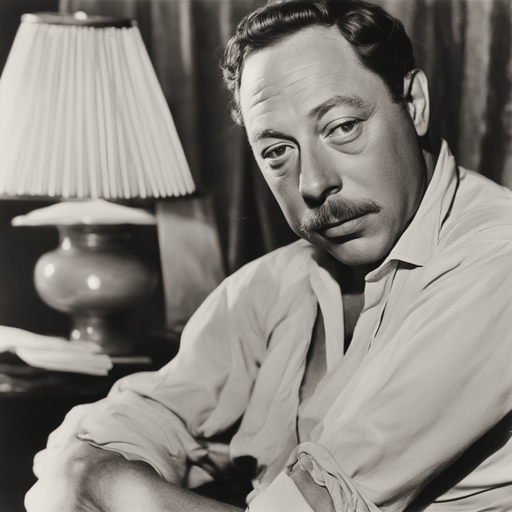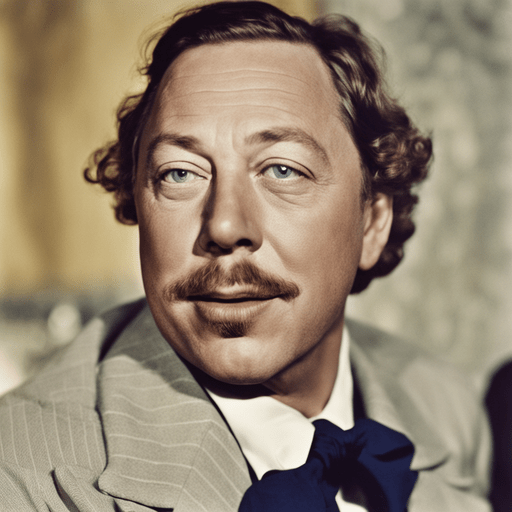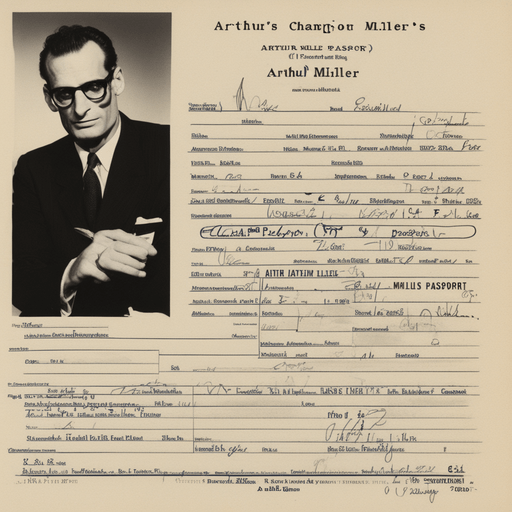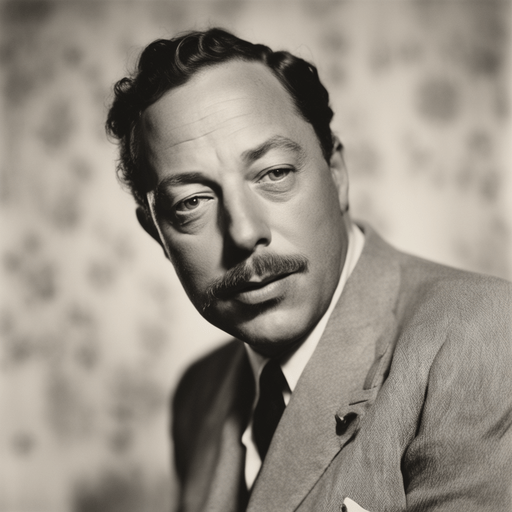
Tennessee Williams, born Thomas Lanier Williams III in 1911, remains a captivating figure in American theater, and his life is brimming with interesting details. One remarkable facet of his life is his nomadic existence, with residences in cities like New Orleans, St. Louis, and New York City, which significantly influenced his iconic plays such as “A Streetcar Named Desire” and “The Glass Menagerie.” Explore more fascinating facts about Tennessee Williams.
Williams fearlessly delved into taboo subjects like mental illness and sexuality, boldly shaping the landscape of American theater. His audacious storytelling earned both praise and controversy, pushing the boundaries of the entertainment industry. Many of his plays have been successfully adapted into enduring films, securing his lasting impact on audiences worldwide.
Quick Facts About Tennessee Williams

- Birth Name: Thomas Lanier Williams III, later adopted the pseudonym “Tennessee.“
- Debut Play: “Cairo, Shanghai, Bombay!” – a historical drama about Pharaoh Akhenaten.
- Early Career: Worked at the International Shoe Company.
- 1937 Contest: Entered the playwriting contest with “Beauty Is the Word.”
- Skeet-Shooting: Went skeet-shooting with President John F. Kennedy.
- Controversial Film: Co-wrote “Baby Doll” (1956), condemned by the Catholic Legion of Decency.
- Advocacy: Supported Arthur Miller when denied a passport.
- Marlon Brando: Fixed plumbing during his audition for “A Streetcar Named Desire.”
- Film Adaptation Disdain: Disliked the film version of “Cat On A Hot Tin Roof.”
- On-Stage Acting: Late in life, acted in “Small Craft Warnings.”
- Unique Farewell Wish: Wanted his body thrown into the ocean after death.
- New Orleans Festival: Honored annually for his cultural impact.
- Biographical Insights: His life provides context to his works.
- Playwright Legacy: Continues to influence theater worldwide.
- Iconic Work: “A Streetcar Named Desire” explores desire and madness.
Also Read this: 50 Amazing Facts about Tennessee
The True Name Behind the Legend
Renowned playwright Tennessee Williams, whose birth name was Thomas Lanier Williams III, adopted his iconic pseudonym, drawing inspiration from his father’s home state. This transformation marked the beginning of an illustrious career in the world of theater.
Debuting with Historical Drama

Tennessee Williams’ initial professional endeavor, “Cairo, Shanghai, Bombay!”, was a foray into the intriguing life of the Egyptian ruler Pharaoh Akhenaten. Surprisingly, this early work hinted at his enduring fascination with historical narratives, a theme that would reappear throughout his prolific career as a playwright.
The Shoe Company Years
Prior to his rise to theatrical fame, Tennessee Williams dedicated formative years to working at the International Shoe Company. Interestingly, this unassuming job profoundly influenced his perspective, offering a firsthand glimpse into the challenges and hardships faced by the working class.
The Contest that Didn’t Define Him
In the pivotal year of 1937, Tennessee Williams boldly ventured into playwriting by submitting “Beauty Is the Word” to a contest. Unfortunately, victory eluded him on this occasion; however, this initial setback marked the inception of a remarkable and enduring journey in the world of theater, ultimately defining his illustrious career.
A Presidential Outing
Unexpectedly, Tennessee Williams formed a remarkable bond with President John F. Kennedy during an impromptu skeet-shooting excursion. Surprisingly, this unlikely friendship offered a rare insight into the playwright’s personal life, shedding light on his interests beyond the realm of theater.
Controversy Surrounding “Baby Doll“
In 1956, Tennessee Williams co-wrote “Baby Doll,” a groundbreaking film that ignited outrage and condemnation from the Catholic Legion of Decency, primarily because of its daring and provocative themes. Despite the controversy, the movie gained widespread attention and ultimately contributed to the evolution of American cinema and cultural discourse.
Championing Arthur Miller’s Passport

When the U.S. State Department unexpectedly denied Arthur Miller a passport, Tennessee Williams, a prominent playwright himself, staunchly defended his fellow writer. Williams’ firm stance illustrated the depth of camaraderie within the theatrical community, emphasizing the importance of solidarity and support among artists facing political obstacles.
Marlon Brando’s Unique Audition
During the audition for the lead role in “A Streetcar Named Desire,” Marlon Brando introduced an unexpected twist by showcasing his plumbing skills. This surprising talent injected an extraordinary dimension into the audition process, leaving a lasting and unforgettable anecdote for those who witnessed it.
Displeasure with Film Adaptation
Williams openly voiced his dissatisfaction with the film adaptation of “Cat On A Hot Tin Roof,” shedding light on the inherent challenges in translating his intricate characters to the cinematic medium. His critique highlighted the nuances and depth that often get lost in the transition from stage to screen, prompting important discussions within the film industry.
Williams’ On-Stage Debut
In a surprising turn of events, late in his life, Tennessee Williams ventured onto the stage as an actor, showcasing his talents in a production of his own play, “Small Craft Warnings.” This unexpected foray marked a distinctive and unconventional chapter in his illustrious career, intriguing both critics and admirers alike.
An Unconventional Farewell Wish
In an unconventional final wish, Tennessee Williams desired that his body be cast into the ocean, a poignant testament to his deep affection for the sea. This unique farewell underscored his penchant for the extraordinary and added a distinctive touch to his legacy, leaving a lasting impression on those who knew him.
Celebrating in New Orleans
Annually, in the vibrant city of New Orleans, a grand festival takes place, dedicated to celebrating the enduring influence of Tennessee Williams on American culture and theater. This vibrant event, brimming with artistic performances and insightful discussions, serves as a poignant reminder of his lasting impact and cultural significance.
Unveiling the Playwright’s Biography
To truly grasp the genius inherent in Tennessee Williams’ masterpieces, it is imperative to delve deep into the captivating narrative of his life. His tumultuous experiences, marked by trials and tribulations, served as the crucible for his creative brilliance. Consequently, his life story becomes an essential lens through which we appreciate his work.
The Lasting Impact of an American Playwright

Tennessee Williams’ profound impact on the theater world is undeniable. His influence extends across generations, underscoring his status as a literary giant. His groundbreaking contributions fundamentally reshaped the trajectory of drama. Furthermore, his enduring legacy continues to shape and inspire playwrights, actors, and theater enthusiasts worldwide.
Iconic Works: “A Streetcar Named Desire
“A Streetcar Named Desire,” a timeless classic by Tennessee Williams, continues to enchant audiences of all generations. This iconic play, exploring the intricate facets of desire and madness, has retained its allure since its inception. Moreover, it has endured the test of time, maintaining its status as a celebrated masterpiece.
FAQs
Answer: Thomas Lanier Williams III.
Answer: John F. Kennedy.
Answer: “Baby Doll.”
Answer: He wanted his body to be thrown into the ocean.
Answer: “A Streetcar Named Desire.”